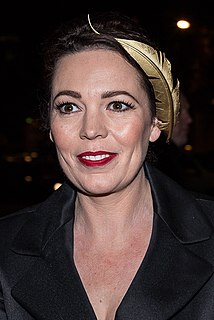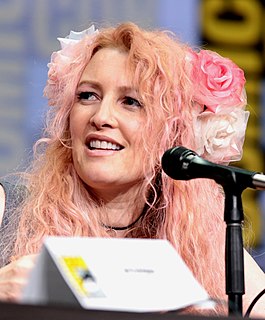A Quote by Kim Harrison
I've found that when I'm having trouble solidifying a character or a scene, that music will often free my subconscious just that last little bit to allow me to move forward, and often it's in a direction that I didn't expect, but is 100 percent true to the character.
Related Quotes
I actually take images of things and put them up around the wall and in a room. I set a room aside. It might be colors, it might be animals, or energy and words. And I'll just leave it there, so it begins to work on my subconscious when I think about the character. Which gives me some latitude to be really flexible and spontaneous but within the context of the character and the world of the character without having to think about it. Or I'll look at something or read something and let it work on my subconscious mind.
Misanthropy ariseth from a man trusting another without having sufficient knowledge of his character, and, thinking him to be truthful, sincere, and honourable, finds a little afterwards that he is wicked, faithless, and then he meets with another of the same character. When a man experiences this often, and more particularly from those whom he considered his most dear and best friends, at last, having frequently made a slip, he hates the whole world, and thinks that there is nothing sound at all in any of them.
'The 100' gave me this platform I never expected. I didn't expect the character to become anything. I was originally only signed up to do six episodes, and then it just sort of become this whole story and journey, which was an amazing character, a great journey, so that has been incredible, and I didn't expect anything out of it.
Children are 25 percent of the population but 100 percent of the future. If we wish to renew society, we must raise up a generation of children who have strong moral character. And if we wish to do that, we have two responsibilities: first, to model good character in our own lives, and second, to intentionally foster character development in our young.


































